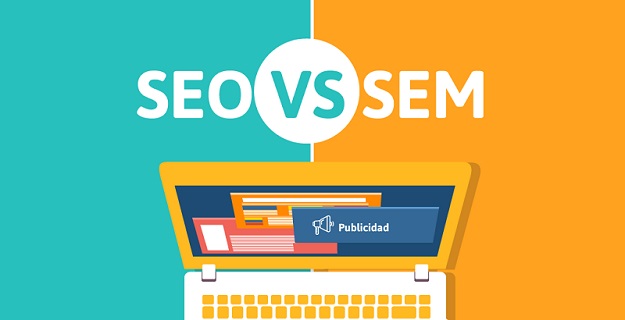In the world of digital marketing, the goal is to boost your website’s visibility and drive sales. If you are a digital marketing beginner, then it’s safe to say you may be a bit confused about everything. Maybe you’re wondering where to start, what to do, and what all of those acronyms mean.
Two of the biggest things you’ll have to work with when it comes to digital marketing are search engine marketing (SEM) and search engine optimization (SEO). They can both be confusing concepts to understand, so we’ve broken down the differences between the two for you below.
What is SEM?
Put specifically, SEM is any type of internet marketing with the goal of increasing a website’s online visibility, using both organic search factors and advertising. More broadly, however, SEM is an umbrella term for any digital marketing that has to do with a search engine in particular. Components of SEM include search engine optimization and pay-per-click advertising (also known as PPC, and we’ll discuss that in just a bit).
What is SEO?

A more specific tactic than SEM, SEO is the particular technique of maximizing the number of visitors to a specific webpage or website. All of the methods used in SEO have the goal of boosting that website’s ranking on Google and other search engines’ results pages, and using that to drive relevant customers to a website.
Some components of SEO include keyword optimization, onsite content, diverse backlink profiles, social media linking and sharing, and proper HTML, among other things.
What does “organic search” mean?
The links which appear on a search results page are always one of two things: organic search results and non-organic search results. Organic search traffic is any traffic which is earned through proper SEO tactics, whereas non-organic search traffic comes from paid ads.
An example of an organic search result is a website ranking on a specific keyword, and because that keyword is on their page, they show up in the first page of a Google search. On the other hand, a non-organic search result is an explicit advertisement, paid for by the website, on the top of a Google search. This is known as PPC, pay-per-click ads, where the website pays the search engine every time someone clicks on their ad and enters their website.
Why should I focus on organic leads vs. non-organic and vice versa?
This comes down to a personal preference. Organic leads are seen as one of the most beneficial ways to boost a company’s online presence. It’s important to know that SEO for organic leads does take a few months to develop, and you won’t see results right away. However, when you do get those leads after a few months, they tend to be better quality and easier to convert since they’re targeted to your website.
Non-organic leads are leads that come in immediately, as all you need to do is pay for an ad on Google and you’ll appear on the top of the search results. If you need a boost in the number of visitors to your website, PPC may be the option for you. As a bonus, there is nothing saying you cannot utilize both marketing tactics to maximize your lead flow.
When it comes to SEO and SEM, you really can’t have one without the other. However, it can be overwhelming to figure out your website’s needs and create a personalized marketing plan for you. In those cases, you can look for companies like Link Graph to help with online marketing troubles.


